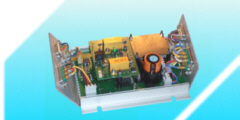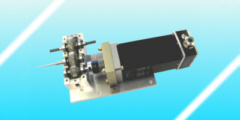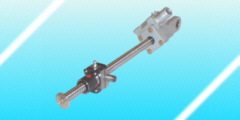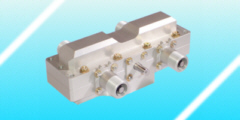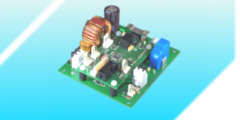Example: concept of software for a digital signal generator
For performance tests of r/c (radio controlled) servos we developed a digital signal generator, so we can investigate the behaviour under various circumstances. The generator produces multiple signal forms as r/c pwm signal: step, triangle, sine, ramp. As with a classic signal generator we can adjust the amplitude and the frequency of the signals within wide boundaries. The repetition rate is variable too. A special feature is the direct analog output of digital values: the command (more precise: the pulse time) is converted into an analog voltage and can be analysed on an oscilloscope together with other analog signals (as current or position), without processing the pwm signal. Another feature is the trigger sync signal for periodical signal, so a clear lock-in is possible.
The signal generator is a major part of a test system, which also consists of multiple power supplies (laboratory supply, rechargeable batteries, voltage regulatory, protection devices) and signal processing modules (sensors, filters, memories). But also the operation of multiple r/c servos is possible to investigate the mutual interference by the conducted noise on the power supply and to test and quantify filtering measures (chokes, capacitors).
We have analysed and characterised various r/c servo types in this test environment, so the operator can gain a better understanding of the electro-mechanical behaviour (current levels at various loads, positioning dynamics, positioning accuracy) to improve the system characterisation.
Althought the software is not intended to fly actually, it is written with the same reliability standards in mind (as MISRA, but also RTCA/DO-178), which are often part of operational embedded systems. These standards are necessary to establish reliability levels.

